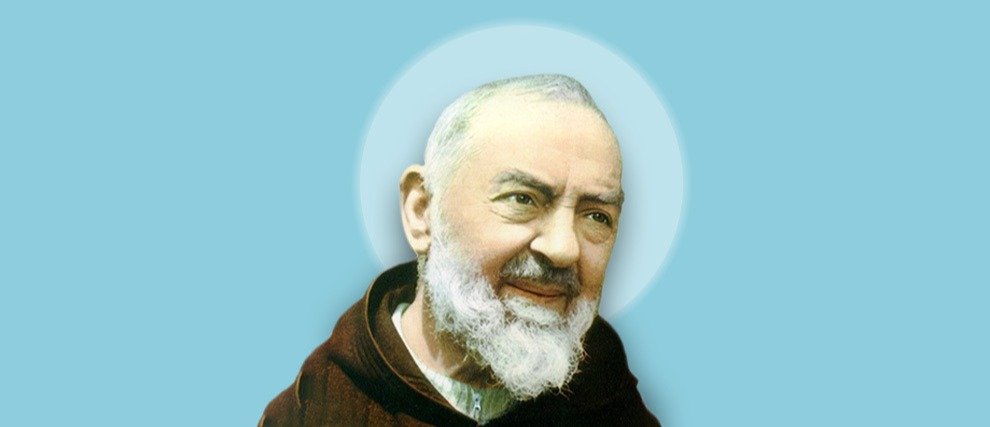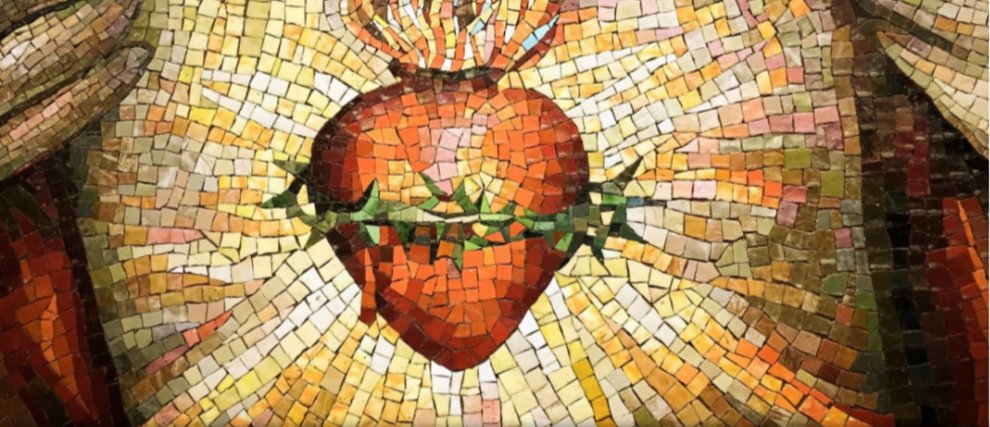Saint Polycarp
“Oh, my God! In what century did you have me born?!”
Like the rest of the Fathers of the Church, little is known about the life of this man of faith born around 70, who became Bishop of Smyrna at the turn of the 2nd century. A disciple of the apostle and evangelist Saint John, he taught Saint Irenaeus of Lyons in the faith and Johannine tradition. Like his disciple, he fought against heresies, particularly gnosticism, and died a martyr in Smyrna in the mid-2nd century.
Click here to get to know the Fathers of the Church better.
And here to get to know his disciple Saint Irenus of Lyon better.
(Discover other saints and blessed people of the Church in the Guide to Saints)
There is also this to pray with the Saint of the day.
The Life of Saint Polycarp of Smyrne
Saint Polycarpe was born in Ephesus around 70 AD. His parents, martyrs, entrusted him to a noble and pious woman, Callista, who raised him in the Christian faith. Deeply moved by poverty, he spent his mother's wealth on almsgiving. When his possessions miraculously reappeared, Callista changed his name from Pancras to Polycarp, meaning “abundant fruit.” As an adult, he became a disciple of Saint John the Apostle, who proclaimed the Good News in the province of Asia, alongside Saint Bucolus and Saint Ignatius the God-bearer (later becoming bishop of Antioch). He absorbed the teachings of the beloved apostle and shared his trials until the latter's exile to Patmos. Before his departure, Saint John appointed Bucolus as bishop of the city of Smyrna and entrusted young Polycarp to him as an assistant and companion in labor. Polycarp was then ordained a priest and entrusted with the care of the sick and orphans. Shortly before his impending death, Bucolus designated Polycarp as his successor at the helm of the episcopate of Smyrna.
Clad in the grace of God, he performs miracles and receives the grace of visions, which inevitably leads to numerous conversions. Ignatius, who became bishop of Antioch and was arrested by the Roman authorities, is transferred to Rome around the year 110. Along his journey, far from remaining silent in the face of Roman censorship, he uplifts many Christians. It is there that he meets his friend Polycarp, whom he urges in a letter to glorify the Lord and to be patient with his brothers. He concludes:
“I pay homage to your firmly established piety as on an unshakable rock. [...] The present time demands you to obtain God, just as the sailor waits for the wind and the man beaten by the storm waits for the port.”
Subsequently, Polycarp wrote to the Philippians and insisted: “Faith is the mother of us all, it is the source of hope, and it is preceded by love for God, for Christ and for our neighbor. He who abides in these virtues has fulfilled the commandments of Justice, for he who has charity is far from all sin. ”
Polycarp then leads his church with a firm hand and full of faith for over fifty years. Highly esteemed among the churches of Asia, he is sent to Rome as a representative of these churches to meet with Pope Anicetus around 155-160. It is then a matter of resolving several disagreements between East and West, particularly on the date of Easter. It is also an opportunity for him to assert his struggle against heresies, especially those of the gnostics Marcion and Valentin. It is probably towards the end of his life that he meets and instructs the young Irenaeus, future bishop of Lyon.
Soon after his return, the persecutions resumed with the rise to power of Emperor Marcus Aurelius. Many martyrs were thus delivered to the beasts, while Polycarp maintained all his dignity as a bishop and refused to leave the city. His companions then insisted that he withdraw far from the city, where he began to pray day and night. Arrested by denunciation of a slave under torture, he was brought before the proconsul who urged him to deny and curse Christ by saying: “Have mercy in your old age.” He then replied with this famous reply: “I have served him for eighty-six years, and he has done me no harm. How could I blaspheme my king who saved me?” The crowd then demanded his death by fire. According to the account of his martyrdom, which the saint rejoiced in being deemed worthy by the grace of the Lord, as the executioners lit the fire, the flame rose around the saint forming like an arch. A sweet fragrance then wafted through the entire amphitheater. Seeing that nothing could overcome the saint, the crowd called for him to be finished off with a sword. A large amount of blood then spurted out, extinguishing the pyre. It is in The Epistle of the Christians of the Church of Smyrna to the other churches, one of the oldest texts in Christian literature, that the Church of Smyrna recounts the martyrdom of Saint Polycarp and his companions. The martyr's relics were incinerated at the instigation of the pagans, but the faithful nonetheless gathered some bones which they placed in a secret location, thanks to a guard impressed by the endured martyrdom and perhaps desiring to repent. The faithful gathered each year to gather around the relics in his memory. The martyrdom of Saint Polycarp moved the pagans who ceased, albeit temporarily, the persecution against the Christians.
Words of Saint Polycarp of Smyrne
From his Letter to the Philippians:
The essence of Saint Polycarp's words are taken from his letter to the Philippians, attached to the letters he had received from Ignatius of Antioch, and which the Philippians had requested from him. He explains in the first lines:
We send you all the letters of Ignatius, both those he addressed to us and others that we possess from him, as per your request; they are enclosed with this letter.
Here are the essential words:
“They did not like the present world, but He who died for us and whom God raised for us”.
Display this unwavering patience that you have witnessed with your own eyes, not only in the blessed Ignatius, Zosimus, and Rufus, but also in others who were from among you, in Paul himself and in the other apostles, fully convinced that these men have not run in vain but in faith and righteousness and that now they occupy beside the Lord with whom they have shared the sufferings, the place that is rightfully theirs. For it was not the present century that they loved, but the one who died for us and whom God resurrected for our sake.”
“The solid root of their faith (that of the faithful) is bearing fruit. Let them reread the letter of the “blessed and glorious Paul” to strengthen them in the faith they have received because this faith is our “mother to all” (cf. Gal 4: 26).” “Deacons are deacons (servants) of God and of Christ and not of men; let them walk in the way of truth traced by the Lord who made himself the deacon (servant) of all.”
Youth must restrain their slightest evil desires, break free from all worldly passions, as every passion battles against the spirit.
Words of Saint Polycarp at his death:
Lord God Almighty, Father of Jesus Christ your beloved child, from whom we have received knowledge of your name, You, the God of angels, powers, and all creation, as well as of the race of the righteous who live in your presence, I bless You for deeming me worthy of this day and this hour to be counted among your witnesses, and to partake in the chalice of your Christ for the resurrection to eternal life of the soul and body.
Pray to Saint Polycarp, with Hozana!
May God, the Father of our Lord Jesus Christ, may the eternal Pontiff Himself, Jesus Christ, Son of God, make you grow in faith and truth, in perfect gentleness and free from any outburst, in patience and magnanimity, in endurance, in chastity; may God grant you a share in the inheritance of His saints, may He make us participate in it with you, us and all those under heaven, who will believe in Our Lord Jesus Christ and in His Father who raised Him from the dead. Amen. Amen.”
On Hozana, you can find lots of communities to pray and walk with the saints. Develop your knowledge of the saints and your spiritual life.
For example, discover and pray to Saint Joseph thanks to .
Pray to Mary during for healing.
You can also deepen your knowledge of the Bible here:

